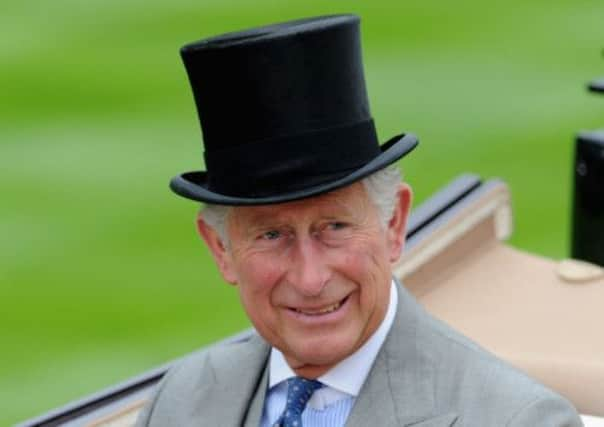Royal finances: Prince Charles’ taxes eyed by MPs


But the tax arrangements of Charles’s Duchy of Cornwall estate, which provides heirs to the throne with a private income, are to be scrutinised by the House of Commons’ Public Accounts Committee (Pac) next month. Charles’s annual review, which was published yesterday, showed the heir to the throne’s funding from the taxpayer fell by 47 per cent during the last financial year from £2.1 million to £1.1m.
The fall was in large part due to a reduction in travel costs as overseas realms – countries where the Queen is head of state – footed the bill when he visited .
Advertisement
Hide AdAdvertisement
Hide AdSpending on official travel paid for through the sovereign grant, the new funding system which has replaced the civil list and grants-in-aid, fell during 2012/13 from £1.3m to £644,000.
Charles’s income from the Duchy of Cornwall, a portfolio of land, property and investments, was up 4 per cent to a record level of £19m.
The Prince’s tax bill fell slightly by £70,000 to £4.426m, a drop of 1.5 per cent.
Margaret Hodge, chairman of the Pac, said the committee decided to question the Duchy after being contacted by MPs and the public, who raised issues about its tax arrangements.
She said: “I’ve had a lot of representation – about 30 MPs have written to me and lots of members of the public asking us to look in detail into the accounts.”
Speaking about the Duchy, Mrs Hodge added: “It’s there to protect [financially] the person who holds that role. It was set up to ensure whoever holds the position has an income.
“But there are issues – does that make it public or private and what happens to capital gains tax and corporation tax?”
William Nye, Charles’s principal private secretary, speaking of the annual review, said: “Naturally, we’re happy to appear before the Public Accounts Committee, if they would like to see us.”
Advertisement
Hide AdAdvertisement
Hide AdMr Nye went on to say that Charles funds the majority of the official costs of himself and his immediate family – the Duchess of Cornwall, Duke and Duchess of Cambridge and Prince Harry – and although he is exempt from income tax, he pays it voluntarily on his Duchy income.
On claims that the Duchy should pay corporation tax, he replied: “It’s not a corporation so it doesn’t pay corporation tax. It’s owned by the Duke of Cornwall and he gets the income and then he pays income tax, like anybody else who owns some property from which they gain an income.”
He added: “The whole point about the Duchy is that it is set up specifically, and indeed required by law, to maintain its capital, to roll over its capital and to invest in the future, to generate income for the future.”
The number of full-time posts at Charles’s household, Clarence House, and the Cambridges’ and Prince Harry’s household, now called Kensington Palace, was up marginally by one to 136, with the younger royals having 10.5 equivalent full-time posts.
A spokesman for the Pac said Mr Nye and Keith Willis, the Duchy of Cornwall estate’s finance director, would appear before MPs on 15 July.